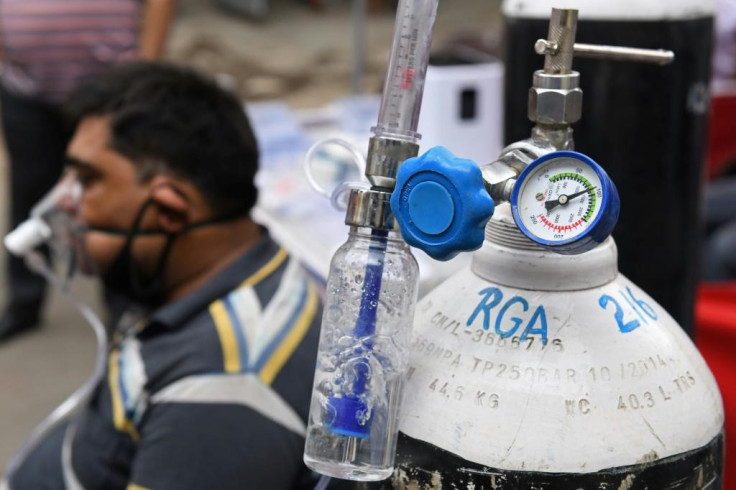India passes 300,000 Covid-19 deaths as 'black fungus' spreads
The coronavirus wave has brought India's hospital system to its knees with severe shortages of oxygen and critical drugs.
India passed 300,000 confirmed coronavirus deaths on Monday, fatalities remaining high despite the country flattening out the number of new cases in its devastating pandemic wave.
It became the third country -- after the United States and Brazil -- to cross 300,000 deaths.
For several weeks the country of 1.3 billion has been hitting record daily rises in infections and fatalities, that have overwhelmed its healthcare system.
While the crisis has eased in major cities such as New Delhi and Mumbai, the coronavirus is still spreading in rural areas and southern states.
Another 4,454 deaths in 24 hours -- the second-highest daily figure so far -- took India's toll to 303,720. It has added the last 50,000 deaths in under two weeks, according to government figures. Experts said the real numbers of deaths and infections, now 26.7 million, were probably much higher than the official figures.
"Deaths always will lag cases... People who have been diagnosed with infection now will go into hospital, and then a small number of them will die but that will be later," Ashoka University biology professor Gautam Menon told AFP Monday.
The brutal wave has been accompanied by the emergence among coronavirus patients of thousands of cases of the usually rare infection mucormycosis, or "black fungus".
The government has given figures between 5,424 and 8,848 for the number across India. Normally it records fewer than 20 cases a year.
Doctors say one of the reasons behind the explosion in "black fungus" infections has been excessive use of steroids on virus patients.

Health Minister Harsh Vardhan said imports of the main anti-fungal drug, amphotericin B, had started to arrive in the country amid a severe shortage.
The coronavirus wave has brought India's hospital system to its knees with severe shortages of oxygen and critical drugs.
The government has been criticised for its response as long queues formed for funerals at crematoriums and cemeteries. Images of suspected Covid-19 dead floating in the holy Ganges river or buried in shallow graves have only added to the controversy.
"We are seeing the bodies along the river Ganges which don't seem to be recorded as Covid deaths but are very likely to be Covid deaths," Menon said.
Experts have warned that religious festivals and packed state election rallies held earlier in the year could have led to virus "superspreader" events.
There were also concerns that the B.1.617 variant, first detected in India last year, has contributed to the surge.
Vardhan said the variant accounted for some 20 percent of just under 26,000 samples from positive Covid-19 tests that have been genetically sequenced.
As part of its efforts to combat the pandemic, India has administered just over 196 million Covid-19 vaccination shots since mid-January.
But experts say the mass inoculation programme needs to be significantly stepped up.
The country, home to the world's largest vaccine maker, has halted exports of vaccines to meet local demand.
Copyright AFP. All rights reserved.
This article is copyrighted by International Business Times, the business news leader






















